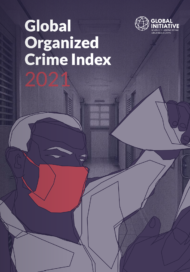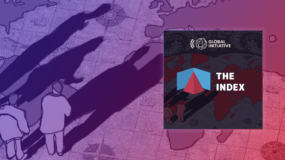Posted on 05 May 2023
Sri Lanka’s political and economic crisis has had a broader destabilizing effect on the country, with challenges to food security and law and order, in particular. The economic stress has also generated a surge in illicit activities, driving up the country’s previously low criminality rate, as measured by the Global Organized Crime Index.
Over the past two years, Sri Lanka has been embroiled in an economic and political crisis. The island nation of 22 million people has suffered months of lengthy blackouts, and acute food, medicine and fuel shortages, with inflation rising to double digits in the country’s worst economic downturn in over 70 years.
Economists say that the situation is the culmination of years of mismanagement, corruption, short-sighted policymaking and poor governance since the 1990s. Although the government has now secured a loan of US$3 billion from the IMF, the economic disaster has presented several unforeseen challenges, including threats to healthcare, food security, education, and law and order.
It has also shaped organized criminal activity. Sri Lanka experienced a surge in serious and organized crimes in 2022, a year that saw much political unrest and civilian uprising. According to police data, grave crimes increased by 60 per cent month on month during 2022, while minor crimes increased in absolute terms from 1 676 recorded offences in January 2022 to 29 908 by the end of November. Additionally, by December 2022, 32 deadly shootings had been reported, largely linked to disputes between drug cartels. This kind of activity is indicative of an increase in the number of transnational crime syndicates, which officials believe are operating from outside Sri Lanka.
At the same time, the government clampdown on dissent and protests has taken precedence over tackling transnational crime and drug-related offences, according to senior Sri Lankan police officers, speaking on condition of anonymity. Leave granted to police officers has been cancelled multiple times, while even those serving in administrative divisions have been brought into Colombo for crowd control.
All of this is likely to have an impact on the country’s low overall criminality score (4.64 out of 10) identified by the Global Organized Crime Index. The country’s significant heroin, cannabis and synthetic drug markets, which account primarily for the overall criminality score, have become more prominent in the context of the recent upheaval. In the 2021 Index, Sri Lanka ranked sixth out of eight in Southern Asia for criminality, while boasting the fourth-highest resilience score in the region (4.04 out of 10), which still puts the country in the ‘low resilience’ band. However, surging criminality in Sri Lanka is likely to be reflected in the results of the forthcoming 2023 Index.
Upon close examination of crime trends, data and incidents for 2022, changes in economic factors in Sri Lanka appear to correlate with an identifiable peak in crime rates during times of crisis. These findings are consistent with criminal motivation theory, which suggests that economic stress is an incentive for some individuals to engage in illicit activities. When compared with data from previous years, there is a noticeable uptick in crime rates during times of instability in Sri Lanka. A study conducted by the University of Peradeniya, for example, found a direct link between economic crisis and escalating crime rates in 2021 and 2022. The study cited, for one, the alarming rise in the number of abductions and kidnappings, which went from 800 in 2021 to a staggering 3 596 within the first 11 months of 2022.
Transnational crime syndicates find troubled spots particularly opportune in moments of crisis. This is especially the case in Sri Lanka, where the crisis was unprecedented. The instability has presented opportunities, particularly for well-established organized criminal networks, such as the groups controlling the country’s prominent drug trades. Chief of these is the heroin trade, for which Sri Lanka scored 6 out of 10 in the 2021 Index.
In addition to economic variables, other factors, such as the presence of youth gangs, drug and alcohol consumption, unwillingness to report crime, as well as insufficient capacity for recording crimes, are significantly influencing crime trends in Sri Lanka.
Although there are not yet sufficient academic or empirical studies on the effects of the most recent crisis in Sri Lanka, if these trends can be better understood and forecasted, there is a potential for the authorities to respond more effectively through policy development and crime prevention strategies.
This analysis is part of the GI-TOC’s series of articles delving into the results of the Global Organized Crime Index 2021. The series explores the Index’s findings and their effects on policymaking, anti-organized crime measures and analyses from a thematic or regional perspective



